Nolanian Bias
Today, my fiancée and I had the chance to step back in time at a photo museum. We were intrigued by a large, circular wooden machine dating back to 1905. This old-world contraption, equipped with 25 binocular-style viewing holes, allowed the public to interact with 3D images for the first time. The images displayed were eclectic, ranging from animals to famous places to people engaged in various professions. Interestingly, this early machine seemed to foreshadow modern technologies like Apple Vision Pro, adapting the concept of 3D visualization to the technological capabilities of the time.
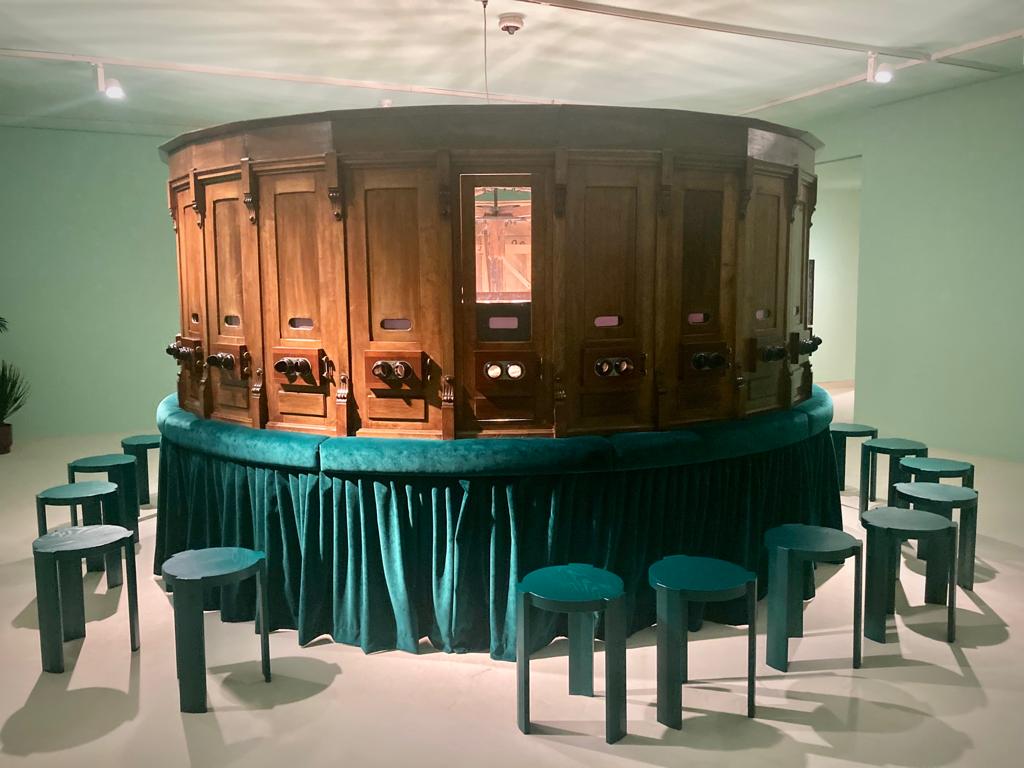 The machine from the outside.
The machine from the outside.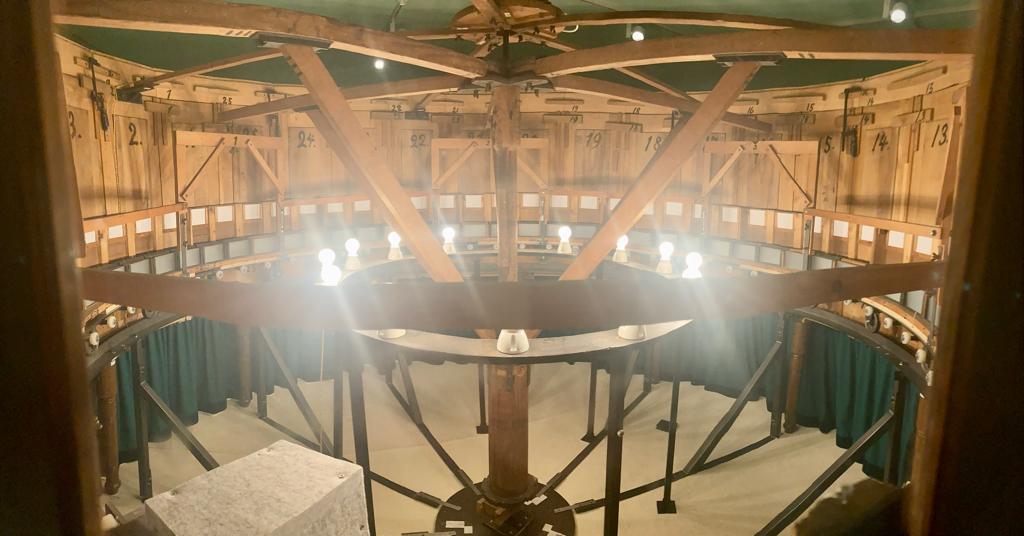 The machine from the inside.
The machine from the inside.Standing at roughly 3 meters in diameter, this machine was substantial, designed to accommodate 25 viewers at a time. Peering inside, we found it surprisingly simple—nothing more than a series of carefully arranged lightbulbs to illuminate each image. The parts holding this thing together were not at all complex, in fact, quite the contrary. This sparked a thought in my mind: could this device serve as a metaphor for our perception of life and reality? In other words, could it be that life looks extraordinary complex from the outside, but is actually pretty straight-forward under the hood?
In our modern world, mind-blowing theories are being discussed regarding simulation realities, alternate dimensions, and the idea that we might be living in a matrix-like construct. When people in 1905 first viewed the images through the old 3D machine, they probably felt shockingly real, much like life feels real. This lead me to think, what if someone has only ever seen these 2D images, interpreted by the brain as a 3D experience, wouldn’t they consider this to be reality? Furthermore, if we are actually stuck in such a limited perspective, unable to see beyond the constraints of our understanding, wouldn’t we come to accept this as the only truth?
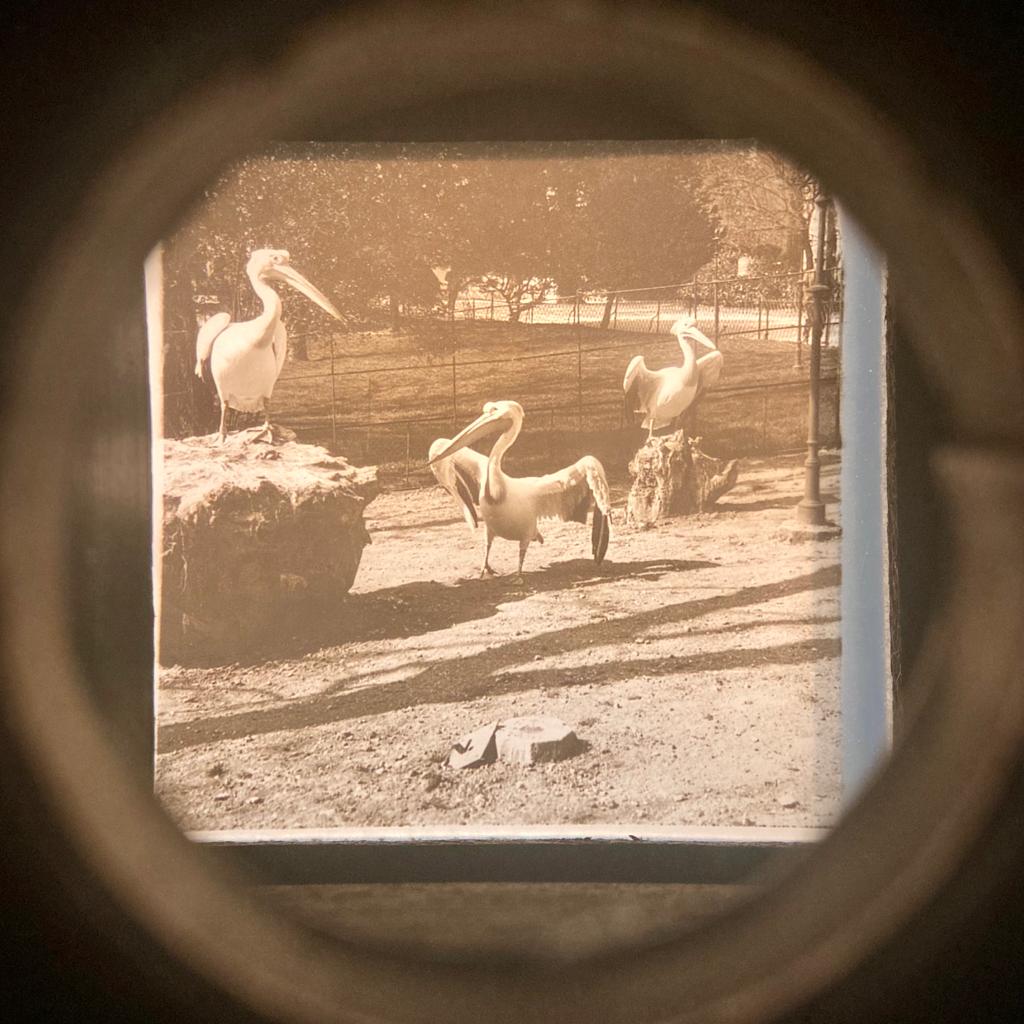 The 3D image when looking through the holes.
The 3D image when looking through the holes.History is filled with moments of revelation that have reshaped our understanding of the world. From the development of tools to the creation of societal structures, we've continually adapted to new discoveries. Many of these revelations make sense looking back. Yet, we've also clung to beliefs in gods, superstitions, and seemingly irrational stories to explain the inexplicable. As we may chuckle at these ideas of the past, we shouldn't forget that future generations will likely find our current beliefs just as amusing. After all, while our theories may sound highly plausible today, so did those of our ancestors back then.
Our understanding of reality is built on a foundation of limited tools and perspectives, much like the 2D images in the viewing device. Could it be that we're stuck in a similar sandbox environment, merely expanding the maze of our understanding without truly breaking free? More critically, can we even imagine breaking free from this limited viewpoint to discover the device behind our perceived reality? And if we were to do it, how would it "look" like? While it could be a highly intriguing revelation, unlike anything we had ever imagined, it could also be even more shocking: something surprisingly simple and elegant.
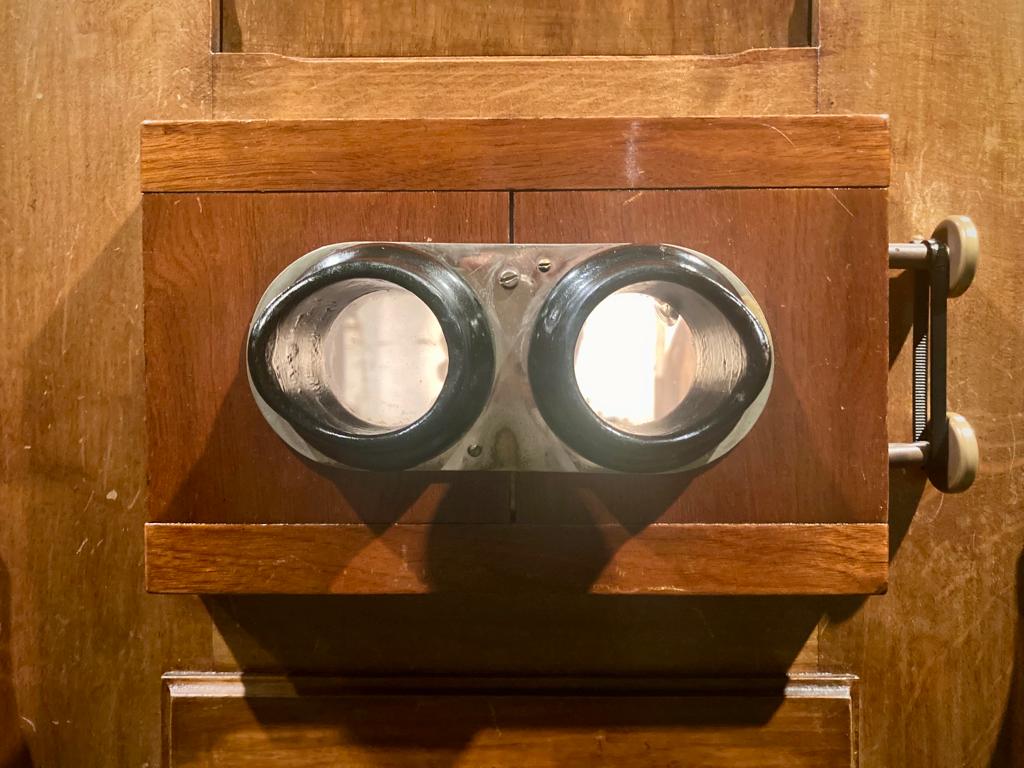 A close-up of the viewing holes.
A close-up of the viewing holes.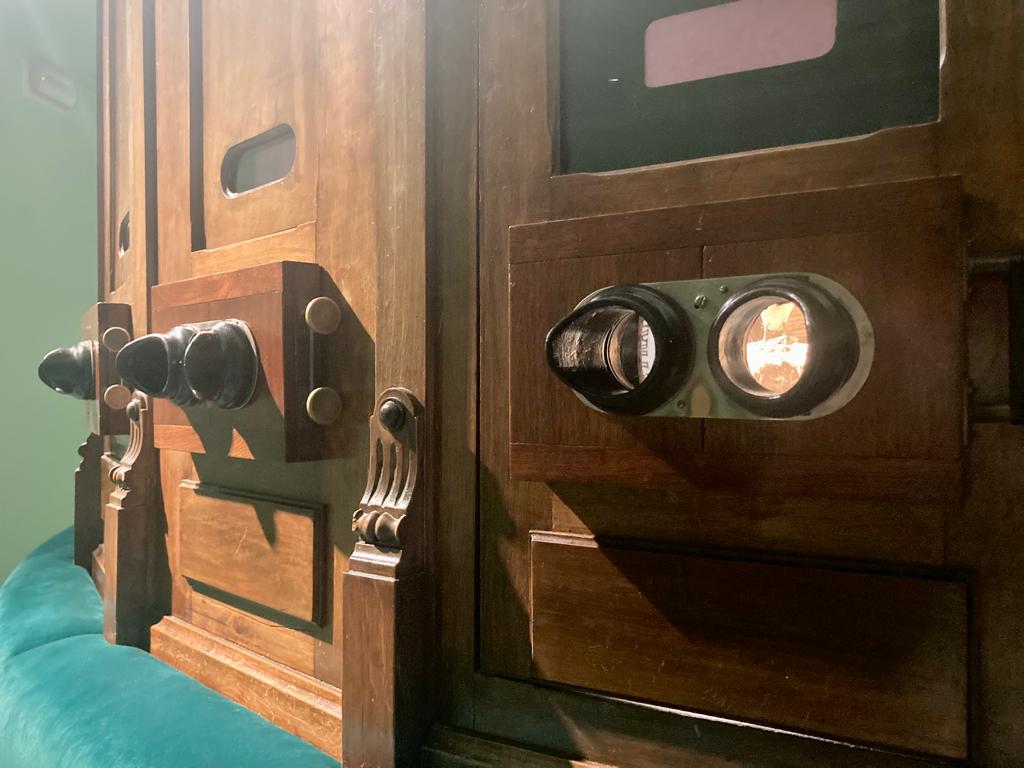 A line-up of the viewing holes.
A line-up of the viewing holes.In the distant future, people may look back on our current understanding of reality and feel as though we've been viewing the world through a limited lens, much like experiencing the 1905 machine. Perhaps our universe is not a multi-dimensional Christopher Nolan-esque spectacle but a simple, perhaps even boring, construct. I hate to say it, but maybe we shouldn't fall for this typical Nolanian bias and stay focused on the task at hand, rather than getting our hopes up too soon about incredible theories that need further exploration.
Please don't get me wrong. While I certainly hope for profound revelations about the nature of reality, and would prefer the cinematic version, I also feel we should prepare ourselves for a reality that may turn out to be more mundane. After all, there’s a good chance all we can do is see through the holes that we have been allowed to from the very beginning.